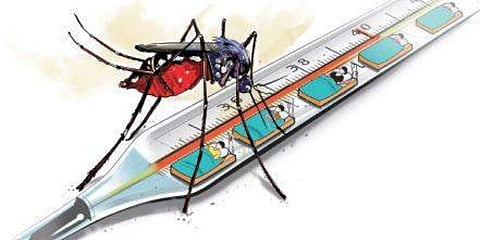

THIRUVANANTHAPURAM: A rare type of malarial infection was detected in an army man who came to the District Hospital in Kannur with symptoms of the disease.
He was found to have been infected with plasmodium ovale, a rare species of parasitic protozoa that causes malaria.
The person had returned from Sudan, a sub-Saharan African country where the ovale type parasites are primarily concentrated.
“We were able to contain the spread of the disease by quickly adopting the precautions as per the guidelines,” said Health Minister K K Shailaja.
The treatment is similar to the one given to other types of malarial infection and it is available in all government hospitals and health centres free of cost, she said.
According to the minister, the infection caused by ovale is not considered as lethal as the other commonly found parasite species that cause malaria though it is rarely reported in the state.
There are five types of malariacausing parasites. However, plasmodium falciparum and plasmodium vivax are responsible for most of the malarial infections.
The disease is spread through the bites of female Anopheles mosquitoes which act as carriers of the parasites.
Malarial infection is characterised by intermittent fever preceded by headache, muscle pain, lack of appetite, vomiting, tiredness and sore throat.
Often, preventive measures are taken to control the mosquitoes as no effective vaccine is available.
Alien parasite
The person had returned from Sudan, a sub- Saharan African country where the ovale type parasites are primarily concentrated.